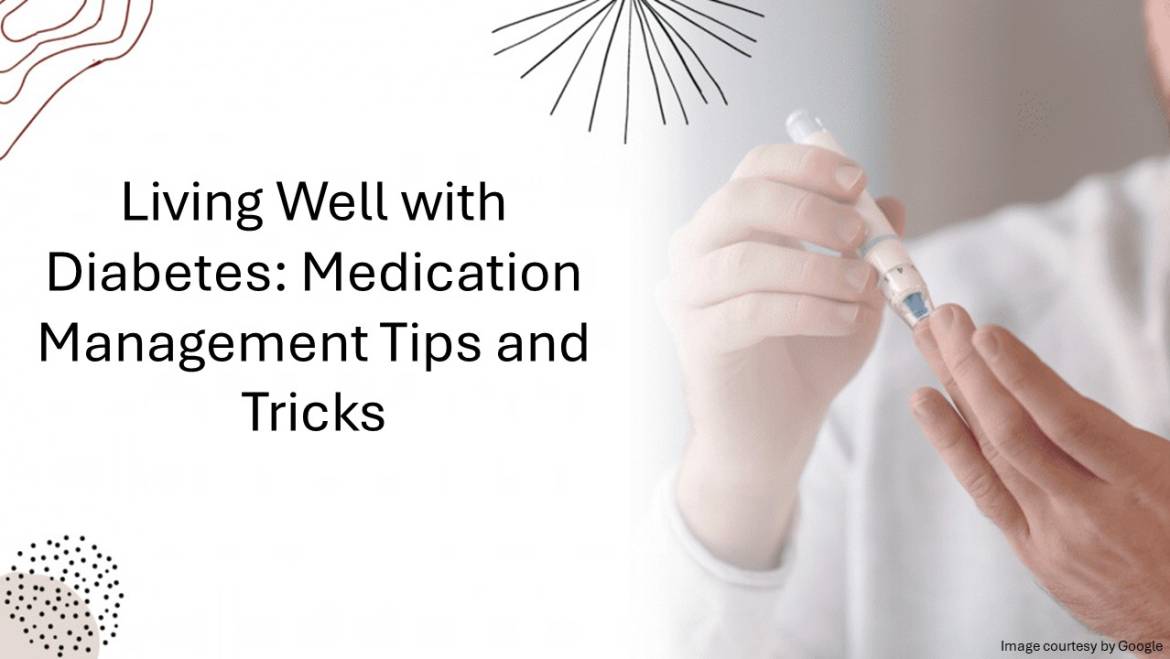Correct diagnosis is important for diabetes treatment, and therefore, emphasis should be placed on using appropriate diagnostic criteria. Treatment aims to not only consider lowering the blood glucose levels but also should focus on improving any cardiovascular risk factors such as smoking, obesity, and hyperlipidemia, as well as controlling blood pressure.
Type 2 diabetes treatments usually follow a stepwise progression with lifestyle interventions, i.e., diet and exercise to achieve weight loss.
Diabetes mellitus can make it tough to control blood sugar (glucose). Some diabetes patients are prescribed the best diabetes medicine that helps keep their blood sugar at a healthy level. This blog gives some basic facts about diabetes medicines.
Do not wait. Diabetes is a serious illness!
Diabetes can cause a heart attack, kidney disorder, blindness, nerve damage, and other serious health issues. This is why a patient should get the treatment at the right time. Treatment helps to prevent or slow some of these serious health issues.
Diabetes Tips
Speak to your healthcare professional before changing or stopping your diabetes drugs, and discuss the following.
- Your target blood glucose level.
- What you should do if your blood glucose gets too low or too high
- How your diabetes medications will affect your medicines, including birth control pills.
Different kinds of diabetes drugs are utilized to treat diabetes patients. Each kind affects your body differently. Some diabetes medications are taken as tablets that you swallow. There are other injectable drugs available to treat diabetes.
When do I need to take diabetes medicines?
Some people with diabetes need to take medicines every day. The type of medication depends on your health and the type of diabetes you have. Your healthcare professional can tell you if you need to use medicine to treat your diabetes mellitus and, if yes, he will prescribe the best medicine for diabetes type 2 and type 1 (whatever type you have).
Type 1 diabetes: People who have Type 1 diabetes make very little or no insulin. They must take insulin shots daily to stay alive.
Type 2 diabetes: People with type 2 do not produce enough insulin or do not use it well enough. Some people with type 2 diabetes medication can use tablets or take other injectable drugs. Other people who have type 2 diabetes require insulin to help control their diabetes.
Gestational diabetes: Some women get diabetes for the first time when they become pregnant. This is referred to as gestational diabetes. Rarely women with gestational diabetes are required to use insulin to control their blood sugar.
Diabetes Medicines
Different types of diabetes medicines are available, most often used to treat type 2 diabetes. There are also some tips and tricks about each kind of diabetes medication. Speak to your healthcare specialist to tell you how to take your diabetes pills.
What medicines should I take to treat my diabetes?
Blood sugar medications work in different ways and are often used together. These are specially formulated to manage blood sugar. Some people suffering from type 2 diabetes mellitus can manage their diabetes with pills alone. There are also injectable medications that are helpful for some people with diabetes mellitus. In many cases, a combination of tablet and injection may be required.
How do diabetes pills work?
Some medications work in the following ways:
- Stop your liver from releasing excessive sugar
- Support your body to use insulin in a better way
- Help the pancreas to produce more insulin
- Slow down the digestion of some carbohydrates
What things might affect diabetes pills to work?
- Severe liver or kidney problems
- Alcohol consumption
- Over-the-counter medicines for different ailments
- Other illnesses

What should I know about taking my diabetes medications?
- Take your tablet at the right time daily
- Make sure you eat at regular mealtimes
- Carry your list of medications every time you visit your healthcare provider.
- It is important to know about all the medications that you are using.
Examples of diabetes medicine and their working
- Metformin/Glucophage: These medications stop the liver from releasing excessive glucose. They enhance the intestinal handling of glucose. Also helps to lower pre-meal blood sugars.
- Glyburide/glipizide/Glimepiride: These belong to the sulfonylureas class of medication. They help the pancreas to release more insulin.
- Pioglitazone: This thiazolidinediones class of medication makes liver and fat cells sensitive to insulin. It is also effective at lowering blood sugar.
- Sitagliptin/Onglyza/Januvia/Trajenta/Linagliptin/others: These DPP4 inhibitors prevent the breakdown of GLP-1, a hormone that improves insulin production from the pancreas.
Medicines to reduce cardiovascular disease risk
Your healthcare provider may prescribe a combination of medicines to lower your blood glucose and reduce the risk of cardiovascular disease. You may be prescribed high cholesterol or high blood pressure medicines.
Do I need insulin shots?
Insulin is a hormone that our bodies naturally produce. When you have been diagnosed with type 2 diabetes, your body does not produce enough of this hormone. Your healthcare professional may prescribe insulin along with medicines.
admin
Latest posts by admin (see all)
- What is Triluma Cream? Uses, Benefits, and How It Works for Skin - December 26, 2024
- What Causes Dark Spots? Understanding the Science of Hyperpigmentation and How Skin Lightening Products Help - December 26, 2024
- Tretinoin Gel vs. Cream: Which Formulation is Right for Your Skin? - December 20, 2024



